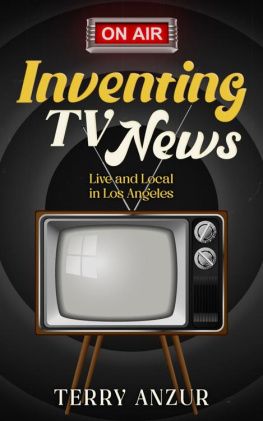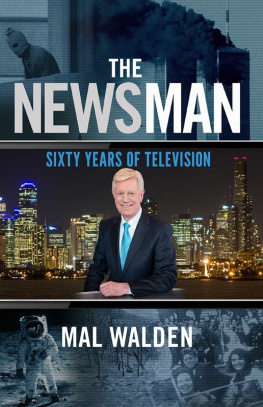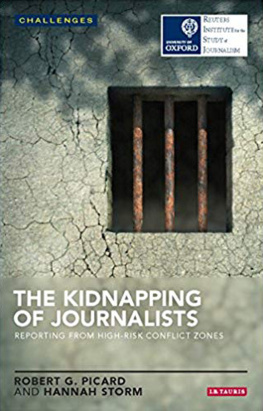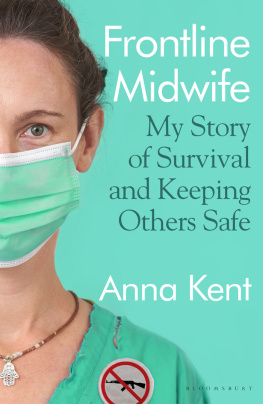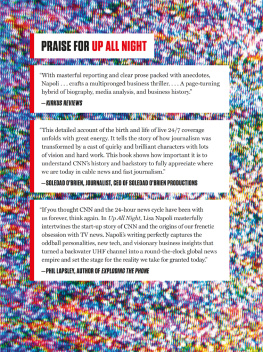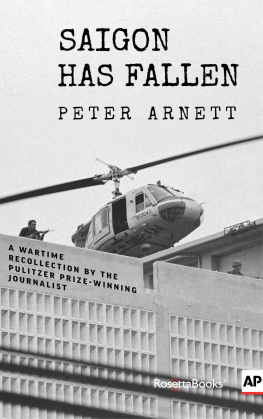FRONTLINE
Loyn does a terrific job. His methodical, journalistic approach is perfect for grounding out a yarn that nobody would dare make up Time Out Book of the Week
A gripping story, splashed with devil-may-care colour and scarcely credible tales of derring-do The Guardian
Girls, booze, physical hardship and flying bullets Loyn keeps his narrative rattling along nicely Daily Mail
Barnstorming non-fiction. Every page is full of the kind of chutzpah, grit and valour that makes your own nine-to-five seem gut-wrenchingly futile. Arena
Youll not find a more impressive set of boys-own tales anywhere. FHM
Hugely entertaining the nearest thing to a Victorian adventure romp of empire against a background of fine marijuana, Hotel California, and the wheep and chirrup of satellite technology Literary Review
You had to dodge a bit to get film for Frontline Television. Much can be forgiven this breed of men. Loyn thinks that they were born at the wrong time not long before television became a respectable, organised part of the establishment, and so could succeed without such mavericks. Frontlines cameramen were, perhaps, the last of the pioneers. W. F. Deedes, New Statesman
The story is a gripping one and Loyn has done an excellent job of rendering it, with strong, fluid writing unspoilt by sensationalism there are more examples of derring-do than in 20 similar volumes essential reading Geographical Magazine
A valuable and very timely insight into the nature of the modern news media and the personalities of these men [the founder members of Frontline]. His book has a novelist quality a quality of precision Andrew OHagan, Orwell Prize judge
A compelling battlefield portrait of a turbulent age Frontline amounts to an authoritative, impassioned and timely cri de coeur for the re-evaluation of a profession that the Frontline news agency raised to a kind of art form James Fergusson, author of Taliban
This fine book is a fitting memorial which will no doubt encourage a few restless souls to hoist a rucksack, pick up a camera and go looking for trouble Time Out
In a bygone era this extraordinary group of adventurers might have carried cutlasses and a flintlock pistol as they travelled to wars around the globe. Nowadays they carry a video camera, but with the same idealism and the same sense of honour. Without the work and courage of the independent camera the world would be a darker place Chris Cramer, Global Editor, Reuters
a compelling account of the extraordinary experiences of a school of TV news freelancers passionately attached to values of independence and authenticity Paddy Coulter, Director, Reuters Foundation Programme
ABOUT THE AUTHOR
David Loyn is the author of the acclaimed Butcher & Bolt: Two Hundred Years of Foreign Engagement in Afghanistan . He is a foreign correspondent for the BBC, who has won major awards for both TV and radio reporting during thirty years in the field. He was the only foreign journalist with the Taliban when they took Kabul in 1996, and has travelled with them on assignment since 9/11.
FRONTLINE
This revised and updated edition published in 2011 by Summersdale Publishers Ltd.
First published by Michael Joseph 2005
Published in Penguin Books 2006
Copyright David Loyn and Frontline Television News, 2005
Foreword copyright John Simpson, 2011
Maps copyright Alex Maxwell, 2005
All rights reserved.
No part of this book may be reproduced by any means, nor transmitted, nor translated into a machine language, without the written permission of the publishers.
The right of David Loyn to be identified as the author of this work has been asserted in accordance with sections 77 and 78 of the Copyright, Designs and Patents Act 1988.
The Acknowledgements and Permissions on pp. 451-4 constitute an extension of this copyright page.
Condition of Sale
This book is sold subject to the condition that it shall not, by way of trade or otherwise, be lent, re-sold, hired out or otherwise circulated in any form of binding or cover other than that in which it is published and without a similar condition including this condition being imposed on the subsequent publisher.
Summersdale Publishers Ltd
46 West Street
Chichester
West Sussex
PO19 1RP
UK
www.summersdale.com
Printed and bound in Great Britain
eISBN: 9780857653161
Substantial discounts on bulk quantities of Summersdale books are available to corporations, professional associations and other organisations. For details telephone Summersdale Publishers on (+44-1243-771107), fax (+44-1243-786300) or email ().
DAVID LOYN
FRONTLINE
Reporting from the
Worlds Deadliest Places
Foreword by John Simpson
Contents
List of Maps
FOREWORD BY JOHN SIMPSON
This book is the history of a moment in television news, which was brief enough, yet so bright that it will stay in the minds of everyone who experienced it, like staring into a torch-beam on a dark night.
Frontline still exists, as anyone knows if they have climbed up the steep stairs to the club-room above the Frontline restaurant in Paddington. Men and women recently back from somewhere terrifying and unpronounceable lounge around in the leather armchairs, or prop up the bar. Objets trouvs , bits of wrecked cameras, looted street signs and something which turns out to be Mo Amins prosthetic arm gleam out from glass cases around the walls. Only Frontline, you feel, would put the false arm of a now-dead cameraman on display.
But time has passed, the world has changed, and those who choose to document its weirder and more dangerous aspects have to adapt to new ways of doing things. Television news is different from the way it was in the 1980s and 1990s, and wars Frontlines greatest stock-in-trade are different too. They have become even more dangerous for the adventurous freelance cameraman or camerawoman to cover, and the old sense of protection which you used to get from owning a press-card and sticking the initials TV in gaffer-tape on the windscreen of your car has long since evaporated. Cameramen no longer have the flimsy security of being regarded as neutral onlookers. Nowadays they, and the reporters who work with them, are treated as though they have taken sides. Wars have become primarily a matter for propaganda, for spin, for twisting the facts.
The glory days of Frontline, the days which David Loyn has chronicled so well and so affectionately in this book, now have a feeling almost of innocence about them: or, if innocence isnt exactly the word that springs to mind when you think of people like Peter Jouvenal, Rory Peck and Vaughan Smith, then there is unquestionably a feeling of straight-dealing, of honourable behaviour, of a long tradition of decent reporting. The American journalist Martha Gellhorn, who died in 1998 a few days short of her 90th birthday, used to love it when I told her stories about Frontline, and she said to me, They sound just like the kind of people I used to work with in the War. It was an accolade to be relished; Martha, who worked alongside Capa and Ernie Pyle, and shamed her husband Ernest Hemingway into leaving his fishing in Cuba to come to Europe in time for D-Day, approved greatly of people like Peter and Vaughan and Rory: real journalists, she called them.



